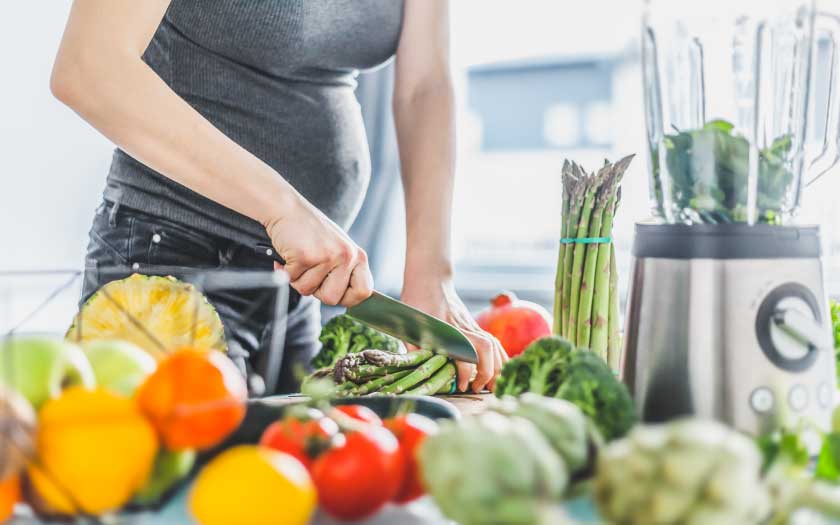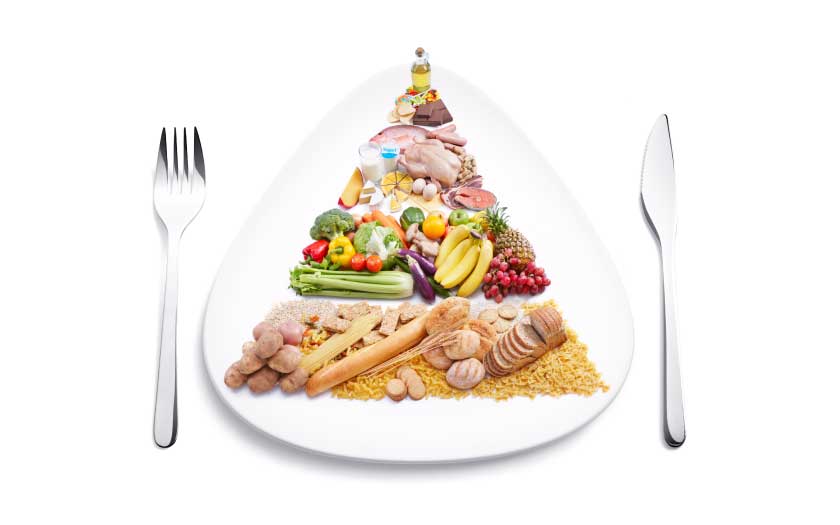Nutrition during pregnancy can be easily overlooked by busy mums who have a million other things to do. Advancements in technology may be spiraling but at this day and time, good health through proper nutrition proves more essential than ever. Sicknesses, diseases, and pollution are at every other corner we turn.
Plus, thanks to modern lifestyle, inactivity is ironically a major problem especially for working mums for most, if not all jobs today involve sitting in front of the PC for hours each day.
Mental re-haul
Come mealtimes, who can deny that it’s much easier and convenient too, to stick a ready-made pizza into the microwave instead of making one from scratch? The differences between the two, however, are many indeed. A ready-made one will not be lacking in taste, to be sure, but it will also not be lacking in artificial additives, preservatives, and flavorings. What it might be lacking though, are fresh, healthy ingredients and well, a whole lot of essential nutrients a pregnant mama would need! Make a similar one from scratch and you will be able to manipulate the wholesomeness of your meal from every angle — the freshness of the ingredients, the amount of seasoning used, etc.
The starting point for obtaining optimum pregnancy health through an ideal diet is to acknowledge one’s self that choosing the right food and mindful preparation of food is essential. This mental re-haul and some proper guidance will get you far in achieving new heights of health and vitality during your special nine months.
The following are important foods to include in your daily diet.
Milk
Milk and milk products provide calcium and other essential vitamins and minerals. They are important for bones, muscle growth, muscle contraction, and nerve transmission. Eating a proper amount from this food group is essential for building healthy blood. Milk is known to ease insomnia and helps regulate your heartbeat. Four servings of milk products per day are recommended for pregnant mums.
Eggs
Eggs provide protein, vitamins, and minerals including vitamin A, the anti-infection vitamin. Together with milk, eggs provide a protein, vitamin, mineral, and calorie foundation for the rest of the pregnancy diet. Two servings of eggs per day are recommended.
Greens
Fresh, dark green vegetables are rich in vitamins and minerals. They are particularly rich in vitamins A and B complex which are necessary to help your body use the protein in other foods. Greens play a role in the formation of red blood cells and therefore a deficiency could lead to anemia. Have two helpings of greens a day to keep up your health!
Whole Grains
Whole grains are excellent sources of carbohydrates, those much-needed substances to fuel your body. If you have too few carbohydrate foods in your diet, your body burns the protein you eat for energy, thus robbing you and your baby of the building blocks for tissue growth and repair. Whole grains are also a good source of B vitamins which are necessary for growth and the normal functioning of nerve tissue. Try to have four or more servings per day.
The ‘C’ in Citrus
Have some citrus! They are high in vitamin C, an important component for the body’s manufacture of collagen, the substance that holds tissue together. Adequate amounts of vitamin C also helps strengthen the uterus and the amniotic sack. Vitamin C is crucial in the body’s defense system against infection and is essential for the absorption of iron, so have a couple of oranges a day.
Fats and Oils
Healthy fats and oils such as those in dairy butter and olive oil are needed to help your body absorb the fat-soluble vitamins A, D, E & K. Fats and oils also contribute to stronger skin which may stretch better during pregnancy. As this food group is a concentrated source of calories, you may go easy on them.
Yellow and Orange Colored Fruits and Vegetables
These specific foods are high in infection-fighting vitamin A. During pregnancy when the pressure of the growing uterus on the bladder grows, Vitamin A helps protect against bladder and kidney infections. As a guide, five serving per week from this particular category is recommended.
Salt
The good quality salt is an essential nutrient in pregnancy. Cutting back too much on salt can cause a decrease in the amount of blood circulating through your body and placenta (hypovolemia) thus reducing the supply of nutrients passing to your baby. Too little salt in the diet can lead to leg cramps, fatigue, and even swelling. So, go ahead and season your food to taste with a little salt.
Protein
Proteins are broken down into amino acids by your body and used to repair body tissues and organs. Your baby’s body will be built from these amino acids. If your diet does not contain enough protein, it could lead to fatigue, swelling, and even loss of appetite.
The average non-pregnant person needs approximately 56 grams of protein per day. A pregnant woman, however, should aim for 80 – 100 grams of protein per day. A three-ounce piece of chicken (which is about the size of a credit card) contains about 20 grams of protein, so one can easily obtain 80 grams in a meal made of some baked or roasted chicken with a side of vegetables. Some peanut butter contains as much as 10 grams of protein in two tablespoons. Peanut butter sandwich, anyone?
Pregnancy Power Foods
Yogurt: Calcium and probiotics
Dark leafy greens: Calcium, fiber, folic acid, and vitamin A
Eggs: Vitamin A, iron and protein
Fatty fish: Omega-3 fatty acids EPA and DHA
Lamb: Vitamin B12, iron and zinc
Berries: Antioxidants and fiber
Sweet potatoes: Vitamins A and E
Avocados: Potassium, folic acid, lutein, and “good” fat
Legumes: Vegetarian protein, fiber, iron, folate, magnesium, and zinc
Nuts: Fiber, vitamin E and magnesium



